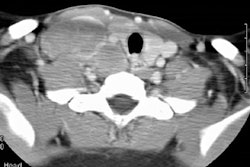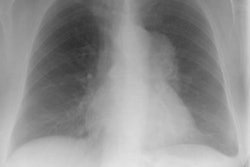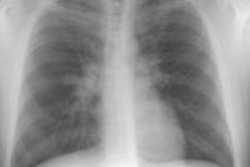Intrathoracic lymphoproliferative disorders and lymphoma.
Murray KA, Chor PJ, Turner JF Jr
University of Utah Health Sciences Center, Salt Lake City, USA.
The spectrum of lymphoproliferative disorders is truly a continuum from
benign diseases to malignant aggressive lymphomas.
Remarkable advances in laboratory techniques of monoclonal antibody
production and molecular biology over the last decade
allow more sophisticated analysis of these diseases. It is now apparent
that some entities previously labeled "benign" are
actually non-Hodgkin's lymphomas. We review the current knowledge of
this spectrum including the histopathologic and clinical
findings, as well as the radiographic characteristics. Understanding
the diseases, treatment challenges, and follow-up
requirements aids the radiologist in a more efficient and cost-effective
evaluation of these patients.



